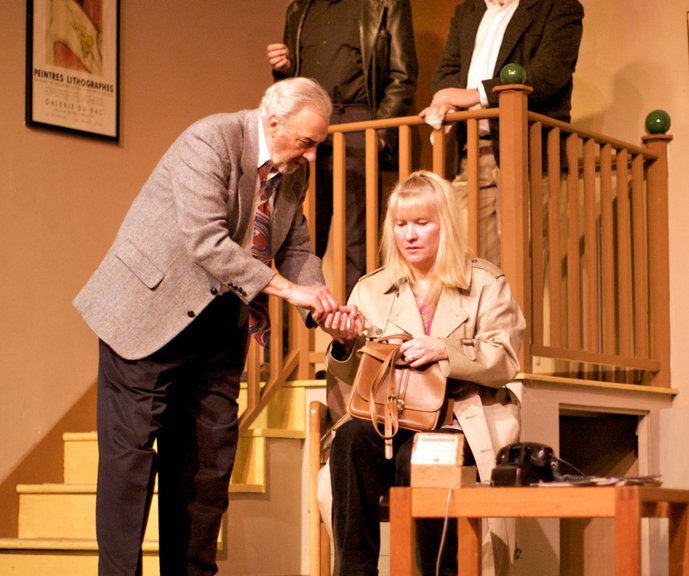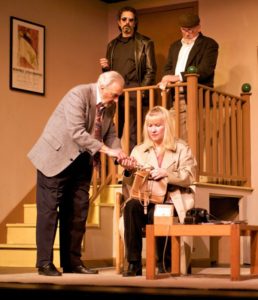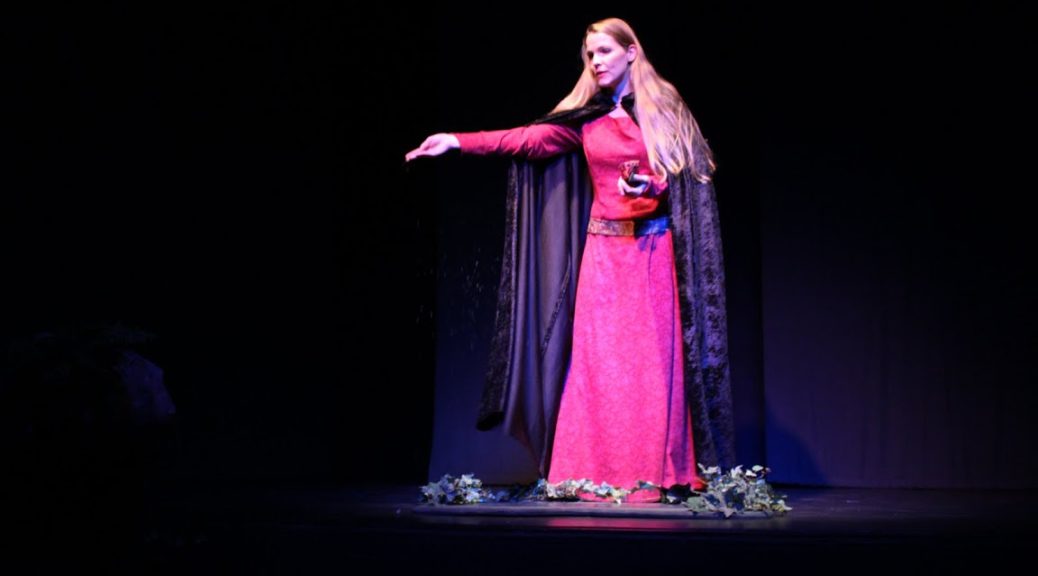Had an epiphany last night. The reason I never got around to talking about my current play “Love Song” is that I didn’t know what I was going to write about after that. I now know.
I also think (that’s too weak: I KNOW) I’m spending too much time on this Journal. It takes me about three hours to write 1,500 words. For some reason it takes me two hours to write 500 words. I think it was Shaw who wrote a letter to his friend and said something like “I don’t have time to write a short note so I’ll have to write a long one.”
On to Love Song.
I’ve written about it before but I spend a lot of time trying to find the four or five shows for our season. The vast majority of the scripts I read or shows I see don’t appeal to me (at least from a producing or directing point of view).
I have to digress.
Several weeks ago, three of us went to Seattle to see plays. Between the three of us, we saw five different plays in three days. One of those plays, “To The Naked Eye” was about . . . well, here is what the theater company said about their play:
“Six comedic vignettes paint the canvas of our multifaceted perception around the meaning of nakedness. Beauty, innocence, and purity, or corruption, perversion and scandal? This poignant and funny evening ultimately strips away our preconceived notions and reveals three simple truths:
Naked people are funny!
Naked people are beautiful!
Naked people are people!”
Gives you a pretty good idea what the play was about. Nakedness. Unfortunately I didn’t get to see that play. Instead, I went to see a show that turned out to be terrible while the two who went to see Naked Eye thought it was good. Not great but good. There were some vignettes that were well done and others not so much so. Anyway it was the source of a lot of good laughs during our after theater comparison of the plays we saw.
Fast forward to last Thursday: A dozen of us went out for the third birthday party for one of our group. (Like my wife said as I was heading out the door: How many birthday parties are you going to have for her?) We’re actors. We party. Get over it!!! 😉
As you might guess, the topic of the Naked Eye came up and engendered a lot of laughs. We talked about the impossibility of doing that play here. After all, we are a VERY small community. Who would get up on stage in front of your friends and neighbors without your clothes on? Well, if I can trust the show of hands, three of the women and none of the men would do it. Can I ever cast it? Probably not. Am I going to get the script and read it to see if I like it? You bet!!! I love pushing the envelope. Does that make me weird? No. It’s really all about good theater. Really!!
Back to Love Song.
In the 15 years I have been running our theater, I have read hundreds and hundreds of plays. Out of that number, there have been a half dozen that just screamed “do me”. “Lend Me A Tenor” was one. I read LMAT when I was in the middle of directing a run of the mill farce and wanted to stop directing that and do LMAT instead. Unfortunately, we were too far along so I had to wait two years before I could fit it in. Same with “Arthur: The Begetting” which I have written about previously. “Wait Until Dark” was another. Same with “Love Song”.
When I read Love Song for the first time, I thought I really had something I couldn’t wait to present. It was one of those plays that just grabbed me right from the start. I read all the reviews of prior productions of the play that I could find: Chicago, Off Broadway, London’s West End and a couple smaller theaters. The reviews were really mixed: What I would call either two stars or four stars (on a five star basis). No one seemed to be lukewarm. They really liked it or really didn’t like it. When you see reviews like that (with almost universal praise of the actors involved) it tells me that it is a play that the director will make or break.
When I read it, i was just coming off a couple of plays that, while successful, did not draw the audiences I thought they deserved. (“Arthur: The Hunt” and “Moonlight And Magnolias”). In between those two plays a good friend had directed the very popular “Almost, Maine”. I was second guessing myself. Had I changed so much in my taste in plays that I had lost our audience? Had I lost my ability to pick good plays? I talked to a lot of people who had not come to see my recent plays. A lot of excuses not reasons.
I passed the script around to several friends for comments and got almost universal praise for the play. There was some concern expressed that the language and themes would require a “mature audiences only” warning. In itself, that didn’t bother me – after all we had done the play “Torso” which had language and nudity issues – but I didn’t know if if I was emotionally ready for another low attendance show.
We had an upcoming Board of Directors meeting for our group so I put it on the agenda. We had a wonderful discussion – one that left me on top of the world for a long time. We are one of the few theaters that make money without relying on donations. While we don’t solicit donations (except for specific items) we gratefully accept them but never use them for operations – donations go to capital projects: New seats, new lighting fixtures and so on. Since we have money in the bank we have the luxury of not letting financial considerations be the overriding factor in decisions we make. The loud and clear message from our Board was the need for high quality theater. As long as we are providing high quality theater and tell the audiences what to expect (mature audiences), go ahead and do what I thought was best.
Will finish this tomorrow. . .






